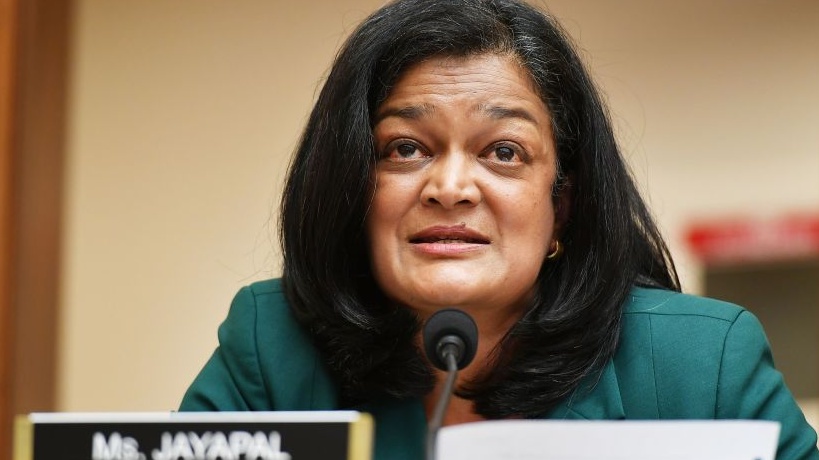Rep. Pramila Jayapal, D-Wash., quickly gathered her colleague after she mispronounced her name during a Judiciary Committee hearing about protests in the state of Washington.
While asking U.S. Attorney General William Barr a question about the government's response to protests in Seattle, Rep. Debbie Lesko, R-Ariz., mispronounced Jayapal's name, NBC News reports.
"Mr. Attorney General, is that your understanding of what happened there? Do you agree with Ms. Jayapal that there was no takeover, it was just —" Lesko asked before being interrupted.
Jayapal, who was present during the hearing, corrected Lesko before she could continue to butcher her name.
"Jayapal," she said. "If you're going to say my name, please say it right. It's Jayapal."
The representative, whose last name is pronounced "JYE-ah-paul," represents Washington's 7th Congressional District, which includes Seattle. According to NBC, she is the first Asian American representative for the state and the first Indian American woman to serve in the U.S. House.
While the discussion around the government's response to protests in Seattle became intense at times, Lesko's ignorance of the correct pronunciation of her colleague's name is an example of racial and name-based microaggression.
U.S. agents were pulled from the city this week following complaints that their presence had increased tension, Reuters reported. The agents were sent to Seattle as Black Lives Matter protests continued to increase in size and anti-racism demonstrations escalated.
In June, protesters set up a safety zone in Seattle outside of an abandoned police precinct after demonstrations turned violent with officers, as Blavity previously reported.
NBC notes that considering their professional relationship, Lesko should have been expected to know, if not required, how to properly pronounce Jayapal's name.
According to an interview with Ranjana Srinivasan, Ph.D., conducted by Psychology Today, the subtle and indirect action of mispronouncing a name often stems from a collective tendency to perceive white people's identity and culture as normal and to view ethnic origins as an "inconvenience."
This inconvenience is one that has become familiar with people in the Black community who are told their names are too "difficult" or "hard" to pronounce.
Rita Kohli, a race and ethnicity scholar at the University of California, Riverside, said learning how to pronounce peoples' names is integral to navigating a diverse country.
Kohli acknowledged that learning how to say someone's name correctly the first time without proper tools may be difficult but also said intentionally mispronouncing a person's name can suggest one's interest in assimilation and the dominance of a specific culture.
Professor Catherine Ceniza Choy, of the ethnic studies department at the University of California, Berkeley, said names and surnames are often integral to a person's ethnic identity. She suggests learning how to correctly say someone's names because doing so acknowledges their history and significance.
